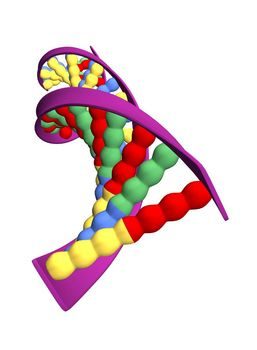
The bills in question are known as the Newborn Screening Saves Lives Act and the Genetic Information Nondiscrimination Act (GINA). GINA, which had been under discussion in one form or another since 1995, passed by a vote of 420 to 3 in the House and 95 to 0 in the Senate. Apparently, it gained some momentum in the 13 years it had been around.
The Newborn Screening Saves Lives Act was passed by voice vote in both the House and Senate. The Newborn Screening Act, among other things, essentially creates a nationwide database of infant DNA, and effectively precludes any parent from opting out of the program. GINA prohibits any non-governmental entity (read: insurance company) from using this now-mandatory information for what could quite factually be called “screening” for genetic defects. The most striking irony might be how one bill effectively seeks to limit the possible negative effects of the other. In effect, one law generates the data while a second law seeks to protect the public from its use. In an upcoming feature, THE NEW AMERICAN will examine this interaction fully.



